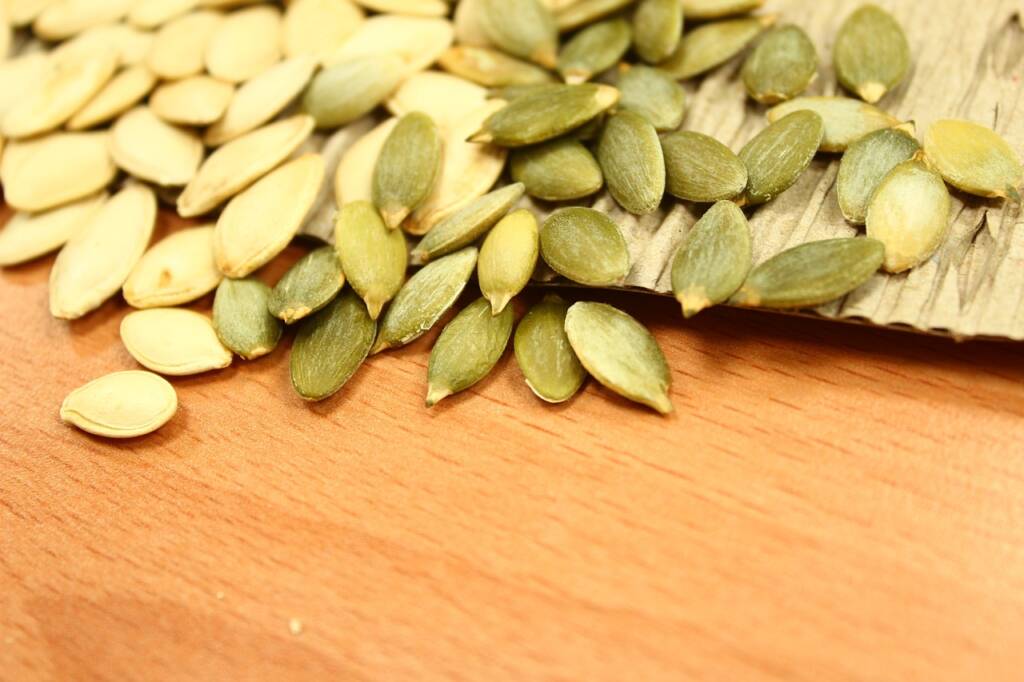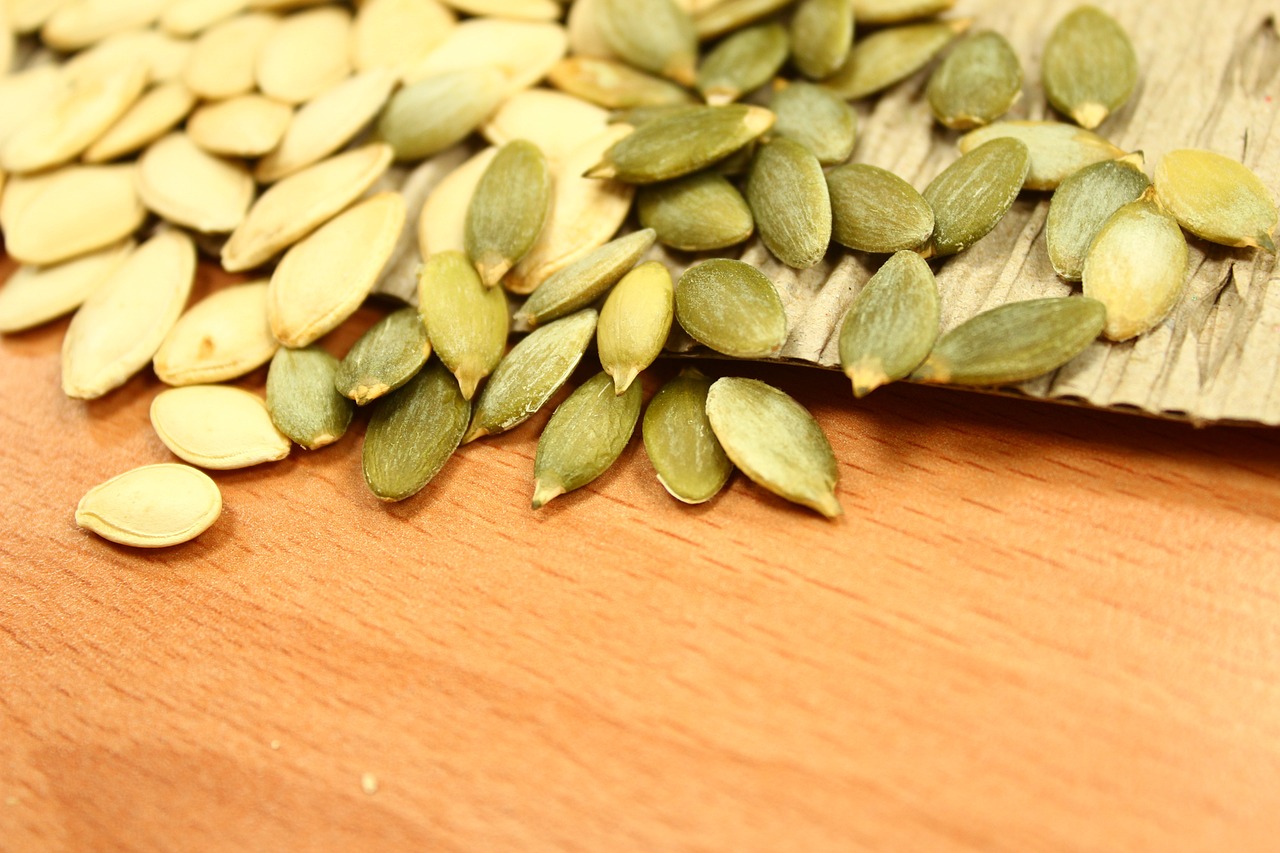Pumpkin seeds, also known as pepitas, are a popular snack and ingredients in various dishes, celebrated not only for their delicious flavor, but also for their numerous health benefits. In this comprehensive article, we will explore many facets of pumpkin seeds, including their role as an energy booster and their potential to lower blood sugar and blood pressure. Additionally, we will provide detailed nutrient facts to help you understand the nutritional value of these tiny yet mighty seeds. All types of seeds play crucial role for optimal wellness. to know more on chia seeds, then read this article, https://sparklinglifestyle.in/chia-seeds-nutrient-facts-and-health-benefits/#
Introduction to Pumpkin seeds:
They are the edible kernels found inside the hulls of Pumpkins, which belong to Gourd family, Cucurbitaceae. They are often oval and tear-shaped and have a flat appearance. These seeds have a rich history of culinary and medicinal use, dating back thousands of years. Native to north and South America, they were cherished by indigenous peoples for their nutritional benefits.

Nutrient composition of pumpkin seeds:
To comprehend the significance of pumpkin seeds in our diet, let us explore their nutrient content. Below are the key nutrients found in one serving = 28 gram of roasted pumpkin seeds. For example, approximately 151 calories, 7 grams protein, approximately 13 grams mostly healthy unsaturated fats, roughly 5 grams carbohydrates, approximately 1.7 grams fiber. They are particularly rich in vitamin E and K and also excellent source of magnesium, manganese, phosphorus, iron, and zinc. Moreover, they contain various antioxidants, including Carotenoids and vitamin E, which help combat free radicals and oxidative stress.
Health Benefits of Pumpkin seeds.
Energy boosting properties:
Pumpkins are an excellent source of energy, primarily due to their healthy fat and protein content. The combination of these macronutrients provides a steady release of energy, making them an ideal snack choice for sustained vitality throughout the day. Additionally, the presence of ancient minerals like magnesium and iron in pumpkin seeds contributes to energy production and red blood cell formation, respectively.
Blood sugar regulation:
One of the remarkable health benefits of pumpkin seeds is their potential to assist in irregulating blood sugar levels. Several factors contribute to this effect: For example,
Magnesium: They are exceptionally high in magnesium, which plays a pivotal role in glucose metabolism. Adequate magnesium intake is associated with improved insulin sensitivity, potential reducing the risk of type 2 diabetes.
Fiber content: They contain a modest amount of dietary fiber, which helps slow down the absorption of carbohydrates from the digestive tract. This can lead to more stable blood sugar levels after meals.
Protein: The protein content in pumpkin seeds can help reduce cravings and maintain steady blood sugar levels by providing a sense of fullness and reduce the temptation to consume sugary snacks.
Anti-inflammatory properties: Some compound in pumpkin seeds, such as cucurbitacin have demonstrated anti-inflammatory effects that may indirectly benefit blood sugar control by reducing insulin resistance.
Blood pressure management:
They may also contribute to lower blood pressure promoting cardiovascular health. The mechanisms behind the potential benefit include, For example,
Magnesium: Once again, the high magnesium content in pumpkin seeds proves beneficial. Adequate magnesium intake is linked to better blood pressure regulation. Magnesium helps relax blood vessels reducing resistance and subsequently lowering blood pressure.
Potassium: These seeds are a decent source of potassium. Another essential mineral for cardiovascular health. Potassium helps counterbalance the effects of sodium in the body, which can contribute to elevated blood pressure.
Nitric oxide production: Some studies suggest that pumpkin seeds oil may enhance the production of nitric oxide, a molecule that relaxes blood vessels for the aiding in blood pressure control.
Culinary uses and tips:
Incorporating pumpkin seeds into your diet can be a delightful and healthful experience. Here are some creative, culinary ideas: For example,
Snacking: Roasted and salted pumpkin seeds make a satisfying and nutritious snack. You can also experiment with different seasonings of added flavor.
Salads: Sprinkle pumpkin seeds over salads for a crunchy texture and nutty tastes. They complement both green and fruit salads.
Baking: Add pumpkin seeds to bread, muffins or granola recipes for a nutrient boost and a delightful crunch.
Smoothies: Blend pumpkin seeds into your morning smoothie for added protein and healthy fats.
Trail mix: Create your custom trail mix by combining these seeds with dried fruits and other nuts for a portable and energy boosting snack.
Pesto: Consider substituting traditional pine nuts with these seeds when making pesto sauce for pasta, or as a condiment.
Precautions and Consideration:
While pumpkin seeds offer numerous health benefits, its essential to consider the following precautions: For example,
Allergies: Some people may be allergic to these seeds. If you experience any adverse reactions like itching, swelling or difficulty breathing after consuming them, Seek medical attention immediately.
Portion control: These seeds are calorie-dense. Consume them in moderation to avoid excessive calorie intake.
Conclusion:
Pumpkin seeds, with their exceptional nutrient profile and potential health benefits deserve a place in balanced diet. From providing sustained energy to aiding in blood sugar and blood pressure regulation, these seeds offer a myriad of advantages for your well-being. By incorporating them into your daily meals and snacks, you can savor their delicious taste while nurturing your body with essential nutrients. Remember to enjoy them in moderation and consult with a registered dietitian or nutritionist or a doctor, if you have specific dietary concerns or medical conditions. To know more about benefits of seeds, then follow my Instagram page.



Leave a Comment